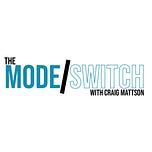Volume 1, Issue 7
Gen Xers like me often complain that just-out-of-college kids expect too much of their jobs. We oldsters accuse Gen Zers of swallowing stuff like, Do what you love, and you’ll never work a day in your life.
Of course, it’s not just college grads saying things like that. They learned to say it from older generations, who it must be said, have long been obsessed with questions like, “How do I find meaning and purpose in my work?” Derek Thompson marvels, in a piece for The Atlantic, at just how many Americans treat their workplaces like sanctuaries. We have, he argues, turned our jobs into “a kind of religion, promising identity, transcendence, and community.”
His name for this misbegotten gospel? “Workism.”
The good news, as a recent interview with Joshua Coldagelli made clear to me, is that you can learn to walk away from the bad religion of workism. Joshua’s story of the life and death of his aspiration to be a college basketball coach centered around one devastating but revealing trip he took as an employee of the Central Michigan University basketball team. The team was, as it happened, practicing in the Bahamas. It should have been an experience of vocational paradise for Joshua: good weather, great basketball, and good work to do. Scratch that last one: he was actually washing endless mounds of practice jerseys in the only two laundry machines the team’s resort provided. One morning, after a 30-hr shift of doing team laundry, he lugged the freshly folded uniforms out of the resort, staggered to his golf cart, and then looked up into an ocean sunrise. “I had to just take a moment and stay in the golf cart,” he said. What he received in return was “a little bit of peace with that day”—and a deconstruction of his vocational dream (his term).
He uploaded a picture of that sunrise as a screen saver on his laptop. The jpeg reminds him of the day he let go of his dream of being a college basketball coach.
“Deconstruction” is a word people use to refer to taking apart their religious convictions, which was, as it happens, what Joshua was doing with his workism. Leaving that bad religion behind meant leaving basketball management for good. Now, he does event planning for a university in Phoenix. He’d be the first to admit that he’s not deeply fulfilled by the grandeur of ushering visit-day students around. But then, he says, work “doesn't necessarily have to be the thing that makes you jump out of bed in the morning.”
Not everyone I talk to among early-career professionals deconstructs their work with Joshua’s gentle understatement. I remember chatting one day with a friend who had been working in higher education, but had since transitioned to work in big tech. I asked him why he had made the surprising job switch. I mean, most people would say he’d gone from a job that was personally meaningful to a job that was driven by anything but meaning.
His answer was a sociology in six words: “I was tired of being poor.”
I respect the curt practicality of those words. It’s a heckuva lot better than that nonsense about loving what you do so you never work a day in your life.
But I’m not satisfied, finally, with deconstructing vocation to its most tersely economic aims. What I’m hearing from Gen Zers suggests that what’s tough about work isn’t just that it’s unfulfilling. It can be, don’t get me wrong, but that’s not the worst of it. No, their problem is that most days it’s full-on overwhelming. Having a job in the first decade of your career means you’re both unfulfilled and burned out at once.
I’m writing this Substack newsletter in order to listen for vocational wisdom that does more than cope when work’s too much. Think of it this way—rather than giving you a five-step process to fix it from a guru with a book deal, I’m trying to point out the wisdom shared by people in the middle of figuring these things out.
I think that’s why I was so taken with Kelly Folkertsma’s story. I caught up with her just a year or so out of college, trying to get ahead of tuition bills by leveraging her degree in Health Communication. As someone doing admittance work for a large medical system, she could congratulate herself that, well, she wasn’t a barista at Dunkin. She could take pride that she was doing a job at least adjacent to the courses she’d taken in college. Sure, she wasn’t writing press releases or constructing marketing plans or developing impressive public health policy: she was checking people’s temperatures, taking down their data, scheduling them for clinical care.
Kelly told me about one Monday in the midst of pandemic, their unit was slammed, as she put it, and she was scrambling through a patient influx that the rest of us were only reading about during the darkest days of COVID-19. To make things worse, after Kelly had taken down their insurance information as efficiently as she could, she had to convey the bad news that it would be four or five hours before they could see the doctor.
It wasn’t the kind of health communication she had dreamed of delivering in college.
The patients nodded as if they understood what Kelly was saying. They went to their lobby chairs and sat down as if to wait things out. But then, just an hour later, Kelly said, they returned to her desk to say they were feeling worse. Could they please see a doctor? Kelly said she felt both frustration and sympathy: she had told them it would be hours yet. Couldn’t they see she was doing the best she could? But then, she would sigh and let her sympathy win out. The people were clearly in pain; she had to act. She’d push away from her desk and go back through the clinic doors to advocate despairingly for the patients. The nurse in charge would listen for a moment to Kelly’s plea and shake her head.
That’s so often the plight of early-career professionals: great responsibility and very little power, very little respect. But I think Kelly has found a way, one way, through this overwhelm: generosity. She told me that, when she takes down people’s information, sometimes they just want to tell her their life story. Think of it: she’s working in an understaffed organization overwhelmed by patients, so she has every reason not to listen to someone’s meandering narrative. And yet, she finds and shares something beyond what the job entails, simply by listening to suffering others.
I know. It’s terribly risky to recommend Kelly’s generosity. All too often, early-career professionals are called upon to smile and to give and give and give—right on through the impossible workday and into the elusive weekend. All too often, their resilience is the currency that underwrites their one-up’s or even higher-up’s productivity and purposefulness.
But Kelly makes me think that maybe generosity is different from resilience. To be resilient enables you to stretch yourself to meet the pressures of the job. But to be generous is to make visible and shareable a circulation of goodness that’s larger than yourself, larger than the job.
I think about Kelly, at a desk in a raucous waiting room. I imagine her, nodding and smiling as a patient shows a picture of a granddaughter on a cracked smartphone screen. I think of Josh standing at the door of a college lobby, flagging down a lost visit-day student and saying, “The meeting’s over here, and welcome—glad you’re here!” And I wonder, is that what vocational deconstruction looks like? Maybe. But it may also be that their mode switch from grinding to giving offers a vocational reconstruction: Be good to who you’re with, and your work will be gift every day of your life.
Who I’m Learning From
These three pieces—two books and a podcast—talk about burnout in ways that both complicate and sharpen my perspective. Malesic doesn’t put all the burden on the individual for somehow climbing out of burnout, O’Donohue reminds us there are choices we can make (with a poignant line You have traveled too fast over false ground;
Now your soul has come to take you back…) and Newport provides a fresh perspective on our overmediated workplaces.
Jonathan Malesic’s The End of Burnout
Episode 176 of Cal Newport’s Deep Questions podcast
To Bless the Space Between Us by John O’Donohue
What do you think? Does the idea of finding ways to give seem like another box to check? Have you experienced times that being generous made a difference—for you or for the person you gave to?
















Share this post